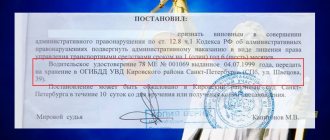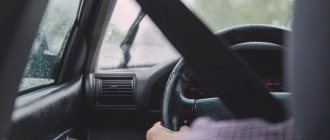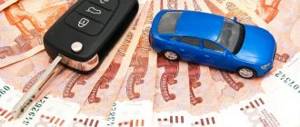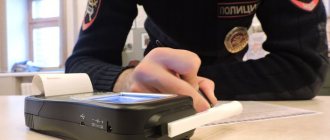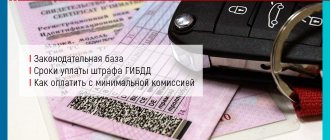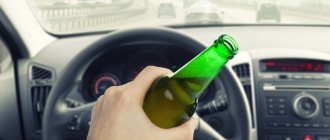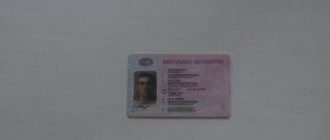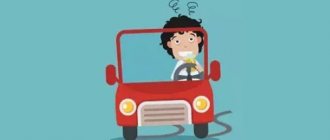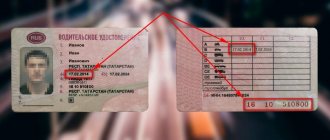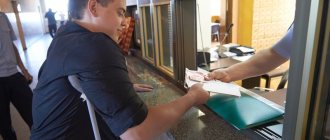Procedure for deprivation of rights for drunkenness
Driving a vehicle while intoxicated is unacceptable. Due to the negligence of one person, other people may suffer. You will also be subject to the deprivation of your driver's license for alcohol and the imposition of fines. If the driver has not previously noticed such inappropriate behavior, he can be fined thirty thousand rubles and deprived of his license for a couple of years - it all depends on the specific circumstances.
In case of repeated violation, the terms of deprivation of a driver's license in court may increase. And the fine can rise to fifty thousand. Criminal penalties for drunk driving are now becoming common. If it involves causing serious physical harm to other citizens, the perpetrator may be given a prison term of two to nine years.
Who cannot be deprived of a document?
Reference. As a general rule, in Russia the rights of disabled drivers who use their vehicle due to their physical condition are not deprived of their rights.
The rule applies to people with disabilities of any group. However, exceptions apply.
When considering the case of a disabled person, the magistrate will take into account not only his status, but also the nature of the offense. In order not to encourage permissiveness on the roads, a disabled person’s rights may be taken away in the following cases:
- Driving a car while intoxicated.
- Refusal of medical examination.
- Creation of an accident resulting in harm to health.
- Leaving the scene of a traffic accident.
- Repeatedly entering the oncoming lane or railway tracks.
After amendments were made to the Federal Law “On Enforcement Proceedings,” bailiffs were able to seize the rights of individuals whose alimony debt reached 10 thousand rubles or more.
There are several exceptions to this rule - for people working with the help of a vehicle (for example, taxi drivers, cargo carriers), people living in remote and inaccessible regions, disabled people and defendants who have reached an agreement on deferment, but each option excluding deprivation must be documented . We talked in more detail about how rights are deprived for debts, including alimony, separately.
Is it possible to win a court case against deprivation of rights for drunkenness?
This is a common question that our administrative law attorneys must answer:
- If procedural violations were committed during registration, the driver can count on the return of the right to drive freely. But proving the innocence of a particular citizen is not very easy without the help of an experienced specialist. Reliable and effective assistance from a driver's license lawyer is relevant if they are trying to take away your license for residual ethanol found in the blood, when consuming alcoholic beverages the day before the accident, and other conditions. A competent lawyer will find a lot of mitigating circumstances and help you preserve your rights or return them through a complaint against the decision of a judge in an administrative case in court.
- To challenge the legality of the actions of the traffic police and the police, you should go to court with the necessary package of documents or use the services of our experienced legal specialist.
What to say in court when you are deprived of your license for alcohol?
It all depends on the actual circumstances. The court will ask the traffic police inspector to attend the trial. You have the opportunity to ask him questions. For example, traffic police inspectors rarely bother to familiarize you with your rights. Ask him a question: did he familiarize you with your rights? And with which ones exactly? In addition, ask the same from witnesses. It is also necessary to ask questions about how exactly your vehicle was stopped by the traffic police inspector, who exactly did it, the vehicle is not always stopped by an authorized person.
In general, the more questions you ask, the more likely you are to confuse the inspector. Inconsistencies in the testimony of the traffic police inspector, witnesses, and witnesses can work to your advantage.
If all the evidence points to your guilt, it is better to confess; such a confession can at least reduce the term of your administrative punishment.
The concept of "alcohol intoxication"
Government Decree No. 475 establishes the criteria based on which the traffic police inspector determines whether a driver is intoxicated. These include:
- Alcohol smell.
- Unstable posture.
- Speech impairment.
- The fingers are clearly trembling.
- The skin of the face changes color.
- Behavior does not correspond to the situation.
- Instruments and indicators indicate the presence of intoxication.
An inspector who finds at least one of the above signs in a person driving a vehicle is obliged to send him for a medical examination.
Article 12.27 of the Code of Administrative Offenses provides that one can speak of the presence of alcoholic intoxication if a person is found to have a concentration of a substance such as ethyl alcohol exceeding 0.16 mg per 1 liter of exhaled air. For a blood test this corresponds to approximately 0.3 ppm.
Important! If you are stopped by a traffic police inspector and asked to undergo a medical examination, you cannot refuse under any circumstances. Since, in case of refusal to undergo it, the inspector has the right to draw up a protocol and bring the citizen to the admin. liability, guided by Article 12.26 of the Code of Administrative Offences.
According to the provisions of this article, refusal to undergo a medical examination is equivalent to the driver admitting he is drunk and involves appropriate punishment.
For those drivers who are interested in how long after taking alcohol-containing substances they can drive a car, we provide a table designed for men 25-45 years old weighing 75-90 kg (for women, the weathering rate should be multiplied by two).
Note! The table shows approximate data, since for each person they are purely individual.
| Person's weight/alcohol | 60 kg | 70 kg | 80 kg | 90 kg | |
| Beer 4% | 100 | 35 min. | 30 min. | 25 min. | 20 minutes. |
| 300 | 1 hour 45 minutes | 1 hour 30 minutes | 1 hour 20 minutes | 1 hour 10 minutes | |
| 500 | 2 hours 55 minutes | 2 hours 30 minutes | 2 hours 10 minutes | 2 hours | |
| Beer 6% | 100 | 55 min. | 45 min. | 40 min. | 35 min. |
| 300 | 2 hours 35 minutes | 2 hours 15 minutes | 2 hours | 1 hour 45 minutes | |
| 500 | 4 hours 20 minutes | 3 hours 50 minutes | 3 hours 15 minutes | 2 hours 55 minutes | |
| Tonic 9% | 100 | 1 hour 20 minutes | 1 hour | 55 min. | 50 min. |
| 300 | 3 hours 55 minutes | 3 hours 20 minutes | 2 hours 45 minutes | 2 hours 35 minutes | |
| 500 | 6 hours 30 minutes | 5 hours 35 minutes | 4 hours 55 minutes | 4 hours 25 minutes | |
| Champagne 11% | 100 | 1 hour 35 minutes | 1 hour 20 minutes | 1 hour 10 minutes | 1 hour |
| 300 | 4 hours 45 minutes | 4 hours | 3 hours 35 minutes | 3 hours 10 minutes | |
| 500 | 8 hours | 6 hours 50 minutes | 6 hours | 5 hours 10 minutes | |
| Port 18% | 100 | 2 hours 35 minutes | 2 hours 15 minutes | 2 hours | 1 hour 45 minutes |
| 300 | 7 hours 55 minutes | 6 hours 45 minutes | 5 hours 55 minutes | 5 hours 15 minutes | |
| 500 | 11 hours 25 minutes | 11 hours 10 minutes | 9 hours 50 minutes | 8 hours 45 minutes | |
| Tincture 24% | 100 | 3 hours 30 minutes | 3 hours | 2 hours 35 minutes | 2 hours 20 minutes |
| 300 | 10 hours 25 minutes | 9 o'clock | 7 hours 50 minutes | 7 hours | |
| 500 | 17 hours 25 minutes | 14 hours 50 minutes | 13 o'clock | 11 hours 35 minutes | |
| Liqueur 30% | 100 | 4 hours 20 minutes | 3 hours 45 minutes | 3 hours 15 minutes | 2 hours 55 minutes |
| 300 | 13 o'clock | 11 hours 10 minutes | 9 hours 45 minutes | 8 hours 40 minutes | |
| 500 | 21 hours 45 minutes | 18 hours 40 minutes | 16 hours 20 minutes | 14 hours 35 minutes | |
| Vodka 40% | 100 | 6 hours | 5 hours 30 minutes | 4 hours 25 minutes | 3 hours 45 minutes |
| 300 | 17 hours 25 minutes | 14 hours 55 minutes | 13 hours 25 minutes | 11 hours 35 minutes | |
| 500 | 29 hours | 24 hours 55 minutes | 21 hours 45 minutes | 19 h. 20 min. | |
| Cognac 42% | 100 | 6 hours | 5 hours 45 minutes | 4 hours 55 minutes | 4 hours |
| 300 | 18:00 | 14 hours 55 minutes | 13 hours 55 minutes | 12 hours 10 minutes | |
| 500 | 30 hours 30 minutes | 24 hours 55 minutes | 22 hours 45 minutes | 20 hours 20 minutes | |
Disqualification period for driving while intoxicated
For drunk driving, a person can be fined 30,000 rubles and deprived of the right to drive vehicles for a period of eighteen to twenty-four months . At the same time, the specified period is influenced by many factors, such as:
- Difficult personal experiences, incl. problems of a family, household, work nature
- Good reference from neighbors, employer, teacher (teacher)
- Voluntary recognition of a committed unlawful act
- Other circumstances, the list of mitigating circumstances is not exhaustive
However, the presence of the above circumstances means nothing if you presented them to the court incorrectly. References to such circumstances before the court must be submitted in the correct order, well reasoned, and proven.
Time limits for various offenses
A complete list of offenses implying administrative liability is listed in the Code of Administrative Offences. For certain, particularly serious offenses, an individual may be completely deprived of his driver’s license.
Every year, such measures are used more and more often and for smaller violations. This is due, first of all, to the decline in the driving culture of drivers and the increasing frequency of drunk driving.
The full list of situations implying deprivation includes more than 2 dozen situations.
The following articles of the Code of Administrative Offenses can be included in it:
- Art. No. 12.2 - driving a vehicle that is not equipped with special license plates or in the presence of any means that make it difficult to read them visually or by cameras or radars (no more than 3 months);
- Art. 12.2- operation of a vehicle with false license plates (6-12 months);
- Part 3 Art. No. 12.2 - operation of a car with red/blue lighting equipment, as well as any others that do not comply with the requirements and standards established in the state;
- Art. No. 12.4 - operation of a car on which light and sound equipment is installed in the absence of the appropriate permit (except for the anti-theft system) - 12-18 months;
- Art. No. 12.5 - use of unauthorized light and sound signals while driving - up to 24 months;
- part 6 art. No. 12.5 - operation of vehicles on which the color schemes of special services vehicles are applied - 12-18 months;
- Art. No. 12.8 - operation of a vehicle while intoxicated of any type (toxicological/narcotic) - deprivation of rights for a period of 18 to 24 months;
- Art. No. 12.8 - permission to drive a car for a person who is intoxicated (toxic/narcotic) - up to 24 months of deprivation of rights;
- Art. No. 12.8 - repeated commission of an offense, which is indicated by other sections of this article - deprivation of the right to drive a car for 36 months;
- Art. No. 12.24 - causing moderate/severe harm to a pedestrian or other person as a result of an accident.
The list of situations when an individual is deprived of the right to drive a vehicle is extensive. Moreover, if a violation is committed again and the first one has not expired, the terms are summed up.
For example, if there was previously a deprivation of a driver’s license for 24 months under Art. No. 12.8 of the Code of Administrative Offences, and after that the traffic police officers draw up a protocol against him under Art. No. 12.5 of the Administrative Code, the total period of deprivation of a driver’s license will be more than 36 months.
The maximum possible duration of deprivation of a driver's license, however, is not limited to any limit. Therefore, for some, especially unscrupulous drivers, it lasts several decades.
The procedure for reducing this period of deprivation is quite complex and is not always applicable. Therefore, you should not commit offenses that subsequently provide for punishment of the type in question.
Punishment for repeated deprivation of license for drunkenness
What is needed, in the opinion of the legislator, in order to bring some sense to a person who has once been brought to administrative responsibility for driving while intoxicated? We think you already understand - criminal liability, probably prison.
What is needed, in your opinion, to avoid this? We think that, like last time, you have already guessed - to defend yourself fiercely, with sweat and blood.
Thus, criminal liability for this criminal act provides for:
- imprisonment for 2 years;
- or forced labor for a period of up to four hundred eighty hours;
- or compulsory labor for up to two years (correctional colony);
- or a fine from 200,000 to 400,000 rubles.
In addition to having a criminal record, probable imprisonment or restriction of freedom, as well as a possible fine, you will have to deal with incredibly “nice” people, in the person of law enforcement and penitentiary systems employees.
Therefore, taking into account the above, we strongly advise you to go into battle not alone, but together with our professional lawyers who will seek the least punishment or acquittal, see more details VIDEO on defense:
What is needed to reduce the period of deprivation of a driver's license
One of the properties of a court decision is the impossibility of its cancellation. Consumer protection? That is why, if it has already been adopted regarding the deprivation of rights, then the only thing that can be done is to try to reduce the duration of this period itself. This is allowed only if a term of deprivation of more than the minimum is assigned.
If the court deprived the driver of the right to drive a car on the basis of Part 1 of Art. No. 12.8 of the Code of Administrative Offenses for 18 months, it will be impossible to reduce the time of deprivation.
The situation is different in the case where the driver was sentenced to more than the minimum sentence. For example, according to Art. No. 12.2 Code of Administrative Offenses - for 3 months. In this case, documents can be submitted to the court that positively characterize the driver.
They may be:
- characteristics from the place of work;
- a petition from a representative or from the defendant himself with a logical basis - why it is necessary to reduce the period of deprivation (for example, if a car is the only source of income);
- other.
Another way could be to challenge the legality of the protocol drawn up by the traffic police officers. This procedure is simplified in the case where the driver has signed on it “I do not agree with the protocol.”
If the protocol is simply signed, without this signature, then it will be almost impossible to challenge its legality.
The procedure for reducing the period of deprivation of rights can only be implemented with the help of a qualified lawyer. Consumer rights? Today, there is a fairly large number of special law firms operating in this segment.
But you should definitely contact us based on a recommendation. Since there are quite a large number of scammers operating in this segment.
You should also remember two important nuances:
- after half of the imposed sentence has expired, a petition may be filed to restore the right to drive a car - if there are sufficiently serious reasons, the court may grant it;
- In case of deprivation of the right to drive a car for a period of more than 1 year, you will need to retake the driving test - compliance with this rule is strictly mandatory.
Checking a driver's license in the traffic police database by last name is described in the article: checking a driver's license in the traffic police database.
Read about the procedure for replacing a driver's license in 2021 here.
Statute of limitations for deprivation of rights for drunkenness
In order for you to be held administratively liable for driving a vehicle while intoxicated, no more than three months must pass from the moment of commission of the act to the entry into force of the decision in the administrative offense case. If you miss the specified period, you cannot be brought to administrative responsibility for driving a vehicle while intoxicated.
Just imagine, first the employee needs to draw up a report on an administrative offense, a medical examination report, a report on suspension from driving a vehicle. Then all this needs to be agreed upon with the head of the traffic police department. Then send all these documents to the court, although this often happens by mail. After which the court needs to accept these documents for administrative proceedings.
Then the court needs to notify the offender about the upcoming court hearing, which also needs to be held. These procedural actions take approximately one and a half to two months from the moment of the violation itself. So, you, like the court, have about a month. Well, you can suddenly catch a cold, thereby losing the opportunity to participate in the trial.
In general, there are a great many reasons to delay the court’s decision on our case; it all depends on the imagination and procedural maneuvering skills of your Defender.
Special cases
Your document was taken away when you were not driving
This situation may involve a driver who has given his car for temporary use to another person, motorists who have drunk alcoholic beverages while driving a vehicle, but not while driving on the streets, as well as those who have broken the law - regardless of who was driving in moment of recording the offense.
Let's analyze all the precedents in more detail. Despite the somewhat paradoxical nature of the procedure for depriving the rights of a person who was not driving, and perhaps was not sitting in the car at that moment, this practice is widespread in Russia. The law requires citizens not only to behave conscientiously while driving, but also to take a responsible attitude towards the disposal of their vehicle.
Attention! When handing it over to another person, you should clarify whether he has a license, whether he knows the traffic rules, and whether he drinks and drives - for the driver’s misconduct, you as the owner of the vehicle will be punished, even if you knew nothing about it.
As for the appearance of the car, for example, illegal red lights, a fine or deprivation of rights will in any case affect the owner of the vehicle: after all, it is the owner of the car who is responsible for its appearance .
A person sitting in the driver’s seat in a parking lot, parking lot, or near his home should also be careful when drinking alcoholic beverages. It is advisable not to approach your car after drinking alcohol.
The law states that only drivers who drive their vehicles while intoxicated can face deprivation of their driver’s license. But in practice, a driver who has not driven the car has to prove that he did not plan to drive while intoxicated and had not driven the car before.
Therefore, it is not recommended to drink in a car , even if the engine is not running and the driver is sitting in the back seat.
If you work as a driver
Unfortunately, when revoking the license of a person who works as a driver, no different rules apply. If the magistrate rules that the certificate will be withdrawn, the employee must resolve the issue with his employer.
In court, the offense is considered from 1 to 2 months, the driver has another ten days to file an appeal. The further fate of the driver depends on the period for which he was deprived of his license . More lenient conditions apply only to people with disabilities.
How to get your license back after being revoked for drunkenness?
You can return your driver's license the next day after the expiration of the administrative penalty. However, before going to the traffic police department, you must go through the following procedures:
- Pay all traffic fines, i.e. not only a fine imposed by the court, but also fines, say, for exceeding the speed limit;
- Pass the test on knowledge of traffic rules
- Pass a medical examination
We also draw your attention to the fact that you can return your rights, subject to the above procedures, on the day you contact the Traffic Inspectorate located at the place of execution of the administrative penalty. However, you can contact another traffic police department, but in this case you will only be able to obtain a license after thirty days.
Is the driver always at fault?
It has been established that when a driver consumes certain foods and drinks, a breathalyzer can show the presence of alcohol intoxication.
Thus, the consumption of kvass, fermented milk products, black bread, medications containing alcohol, and tobacco products can cause disagreements between the traffic police inspector and the driver, as a result of which the latter may lose his license for drinking alcohol.
Here is a list of products that contain alcohol content (in ppm)
How should a driver who finds himself in such a situation behave? If you are sure that you did not drink alcohol, if a disagreement arises with the inspector, you must act as follows:
- Behavior with the inspector must be appropriate and friendly.
- Under no circumstances should you avoid undergoing medical treatment. examination, since a biochemical blood test will confirm the absence of alcohol in the blood.
- Insist on receiving copies of documents from the medical institution where the examination took place.
- Write down the names and telephone numbers of the witnesses who took part in the medical case. examination.
- Include your objections in the protocol drawn up by the inspector, clearly and in detail explaining the situation.
Note! The inspector does not have the authority to deprive you of your rights; only a court can do this, after an objective consideration of all the circumstances of the case, studying documents and hearing witnesses.
Thus, the traffic police inspector has no right to take away the license right on the spot. It should also be taken into account that, if you suspect intoxication, the inspector will remove you from driving the car for safety reasons. You should not trust the inspector to drive the car, because if he commits an accident, all responsibility will fall on the driver and the insurance company will refuse to pay the insurance compensation, since the inspector is not included in the insurance policy. In such a situation, you should invite the person who is recorded in the MTPL policy and transfer control to him.
We remind you! To regain your license after deprivation, you will have to take the exam again and also pay all existing fines, otherwise your license will simply not be returned.
A special legal document for some individual offenses presupposes quite severe punishment - up to and including deprivation of rights. Moreover, this measure is almost always accompanied by a large fine and sometimes by restriction of freedom.
Retaking the exam for deprivation of license for drunkenness
You can retake the exam after half the period of deprivation of your driver's license has expired. However, this does not mean that you will immediately receive your license. This means that you can retake the theory in advance so as not to waste time later on getting your driver's license back.
In general, the procedure for passing a theoretical exam on knowledge of traffic rules is no different from the usual passing of the said exam.
- First, you need to come to the traffic police department with your passport in hand. And apply for a state exam on knowledge of traffic rules.
- After some time, you will be informed about the date of the exam.
- At the appointed time, you come to the same department and take the exam.
If you fail the test, you can apply to test your knowledge of traffic rules seven days after failure.
How does prosecution work?
The procedure for depriving a driver's license for drunkenness in 2021 provides for the following algorithm of actions on the part of the traffic police inspector.
- Stopping a car by a traffic police inspector.
- Removal from driving a car and drawing up a protocol.
- Referral to medical examination and drawing up a protocol.
- Passing the driver's med. inspection with the preparation of the corresponding act.
- According to the results of honey. investigation, drawing up a protocol on the basis of Art. 12.8 Code of Administrative Offenses of the Russian Federation.
- Detention of a car and a ban on its operation with the drawing up of an appropriate protocol.
Important! During medical The examination must be attended by witnesses or video recorded.
Witnesses by their signature on the protocol confirm the fact of carrying out certain procedural actions, as well as their results.
A violation of the sequence of this algorithm indicates that procedural violations have been committed that should be subjected to legal analysis. In such a situation, it is advisable to seek the help of qualified legal specialists who will analyze the situation and develop a defense strategy, thus preventing illegal actions by representatives of the law.
You should also know that even a driver who has lost his license has the right to appeal, during which the decision of the trial court will be reviewed.
A selection for you!
Download forms and sample documents for motorists to a safe place.
Traffic violations for which you will have to lose your license
In fact, there is a huge list of traffic violations for which a motorist can pay with his driver's license. Punishment for any violation of traffic rules is established in the Code of Administrative Offences, and for some of them this regulation provides for liability in the form of depriving the motorist of the opportunity to drive a car for a certain period of time.
However, application of this kind of punishment to the driver is possible only when the violation was recorded and properly recorded by a traffic police officer.
Separately, it is worth noting that if a violation of traffic rules, entailing deprivation of a license, was recorded by a camera, the motorist does not lose his license. In this case, it is only possible to subject him to a fine in the maximum amount provided for by the relevant article of the Code of Administrative Offenses.
